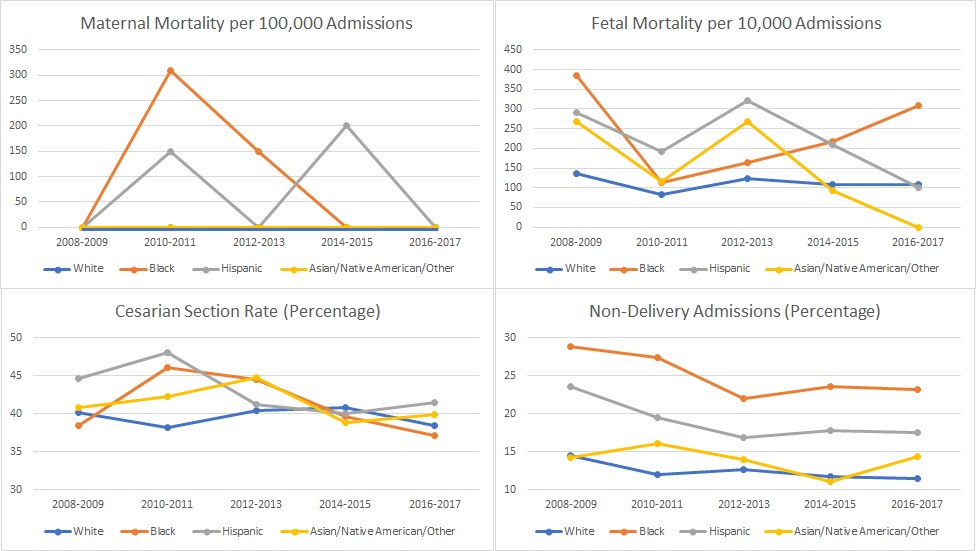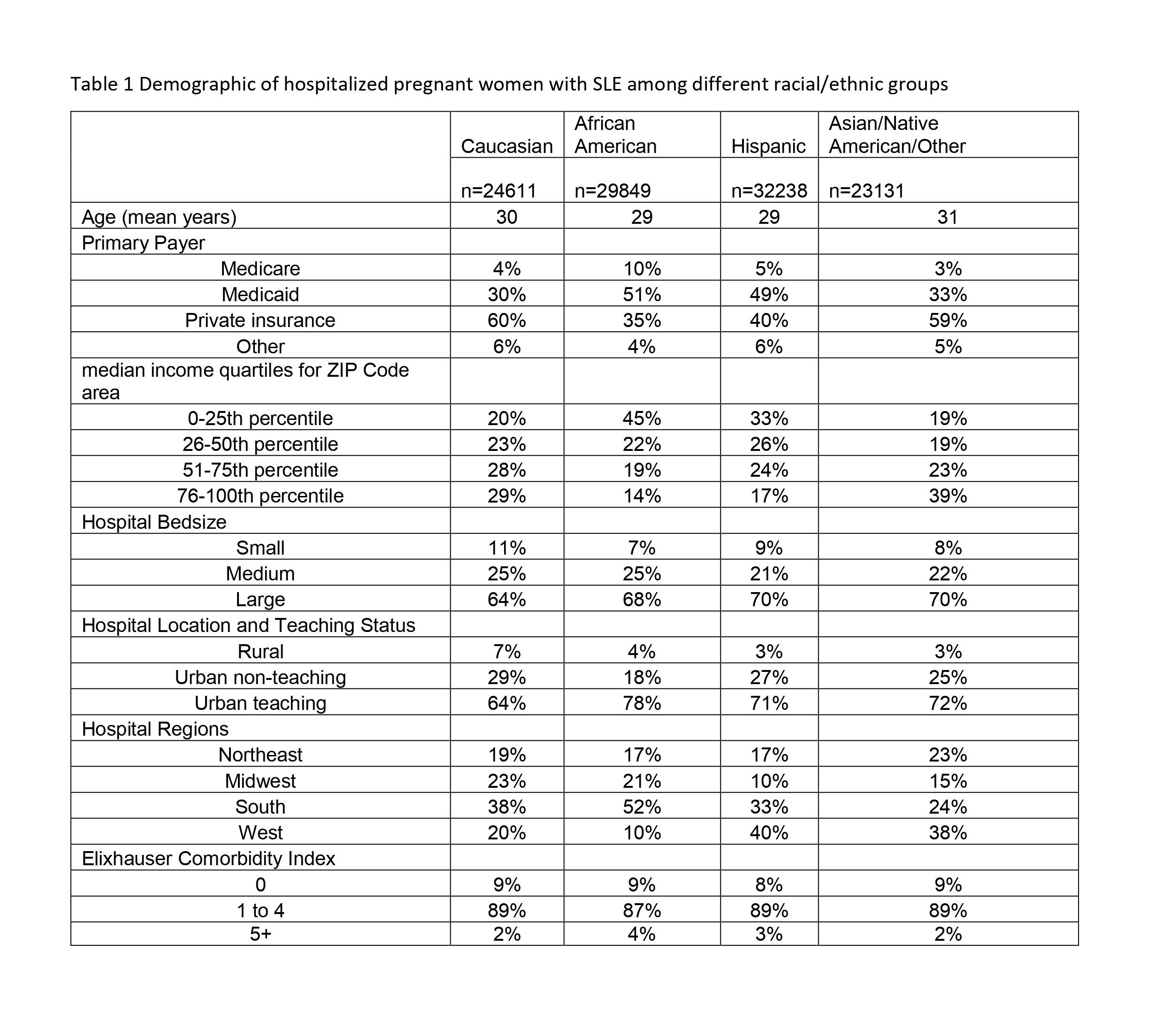Session Information
Date: Monday, November 8, 2021
Title: Epidemiology & Public Health Poster III: Other Rheumatic & Musculoskeletal Diseases (1022–1060)
Session Type: Poster Session C
Session Time: 8:30AM-10:30AM
Background/Purpose: Systemic lupus erythematosus (SLE) disproportionately affects women and minorities of childbearing age. Although maternal and fetal outcomes of pregnancy among women with SLE have improved over time, it is not known whether the improved outcomes are shared equally among different racial/ethnic groups.
Methods: We used the National Inpatient Sample to conduct a retrospective cross-sectional analysis of SLE pregnancy related admissions from 2008 to 2017. Patients were identified using ICD-9/10 codes. Race/ethnicity was the primary exposure variable (Caucasian, African American, Hispanic, Asian/Native American/Others). We studied pregnancy outcomes including in-hospital maternal mortality, fetal mortality, non-delivery related admissions and Cesarean section (C-section). We performed multiple imputation to account for missing data on race. Weights were applied to represent the nationwide estimates.
Results: From 2008 to 2017, there were a total of 61,012 SLE pregnancy related hospitalizations (Table 1). African American and Hispanic pregnant women (29 yrs) with SLE were younger compared to Caucasian (30 yrs) and Asians (31 yrs). Similarly, they were more likely to be on Medicaid (51% for African American, 49% for Hispanic, 30% for Caucasian and 33% for Asian/Native American/Other). During the 10-year study period, fetal mortality, and non-delivery related admissions and C-section rates improved in all racial/ethnic groups (Figure 1). Maternal mortality rates were very low throughout the study period, with none observed among Caucasians. Overall fetal mortality declined in all racial/ethinic groups, with a numerically greater reduction in Hispanic (from 291 in 2008-2009 to 101 in 2016-2017 per 10,000 admissions) and Asian/Native American/Other(from 267 in 2008-2009 to no observations in 2016-2017 per 10,000 admissions) than Caucasian (from 136 in 2008-2009 to 108 in 2016-2017 per 10,000 admissions) and African American (from 385 in 2008-2009 to 308 in 2016-2017 per 10,000 admissions).
Conclusion: Pregnancy outcomes in women with SLE improved in all racial/ethnic groups over the past decade however, persistent disparities in African Americans and Hispanics remain.
 Figure 1: Trends in pregnancy related outcomes over a 10 year period.
Figure 1: Trends in pregnancy related outcomes over a 10 year period.
To cite this abstract in AMA style:
Mehta B, Luo Y, Jannat-Khah D, Xu J, Sammaritano L, Salmon J, Lockshin M, Goodman S, Ibrahim S. Racial/ethnic Differences in Lupus Pregnancy Outcomes over 1 Decade: A US National Study [abstract]. Arthritis Rheumatol. 2021; 73 (suppl 9). https://acrabstracts.org/abstract/racial-ethnic-differences-in-lupus-pregnancy-outcomes-over-1-decade-a-us-national-study/. Accessed .« Back to ACR Convergence 2021
ACR Meeting Abstracts - https://acrabstracts.org/abstract/racial-ethnic-differences-in-lupus-pregnancy-outcomes-over-1-decade-a-us-national-study/

